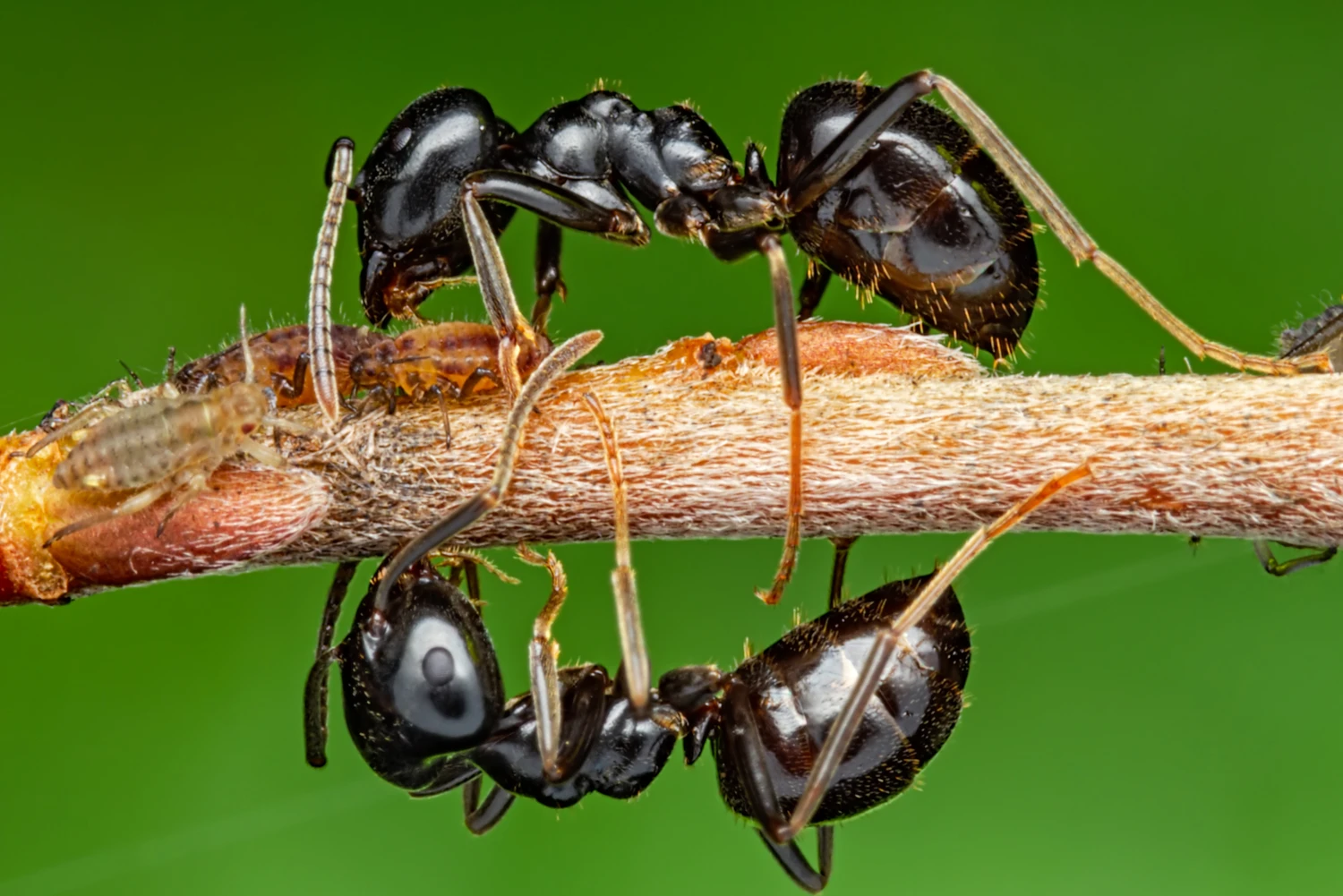What comes to mind when you see an ant? There must be some food debris or a stray granule of sugar in the corner. We often think of these tiny creatures as poor sweet tooths or creepy, intrusive things, but recent scientific discovery points to the fact that they are a lot more. To put it more plainly they might be used as mini bio-cancer detectors due to their acute sense of smell.
Although ants do not have a pair of nostrils like you and me, they use their antennae for olfactory functions such as smelling, seeking a mate and finding food. Scientists recently discovered that in addition to these functions, their antennae (olfactory receptors) have the potential to detect cancerous tumors in urine. According to the study, ants (Formica fusca) can be trained to sniff cancer in urine. As reported in the Proceedings of the Royal Society B: Biological Sciences, scientists successfully trained 35 silky ants to use their antennae to detect tumors.
According to the researchers, with further research and development of this discovery, a cheaper method for early cancer detection could be uncovered. In the United States of America, early cancer detection is recorded to save 12,000 lives annually. The World Health Organization adds that early cancer diagnosis reduces personal financial stress and the overall economic costs of the terminal disease. With these prospects ahead, 7 researchers led by Baptiste Piqueret, an ethologist at Sorbonne Paris North University in France, grafted slices of breast cancer tumors taken from human samples onto mice. They went on to teach the ants how to detect tumors in rodents by associating their urine with sugar. The duration of time spent on healthy urine versus cancer-bearing urine was 20% more for tumor-bearing mice as the tumor was noted to change its odor.
Read Also: New study Links Reduced-Calorie Diet With Slower Aging
The science behind training ants to become bio-cancer detectors has been used in dogs due to the presence of volatile organic compounds (VOCs) in cancer tumor cells. Researchers are able to use these VOCs as cancer biomarkers, hence the possibility of training animals such as ants and dogs to smell and detect cancer. The presence of VOCs is perceived as an anomaly and animals can be easily trained to sniff it with their sense of smell. According to The Washington Post, researchers think that ants may have an edge over dogs and other animals as they require less time to be trained to be effective bio-detectors of cancer.
Cancer results in over 700,000 deaths in Africa. With over a million new cases annually, early diagnosis will save a good fraction of cancer patients across Africa. With ants as a cheaper bio-detector of tumors, much progress can be made in our fight against cancer which is a leading cause of death in the world.
Ehi-kowoicho Ogwiji is a storyteller and science writer who advocates for a science-literate Africa. She aspires to be a science development communicator and leader of important conversations around gender imbalances in STEMM (Science, Technology, Engineering, Mathematics, Medicine) in Africa and around the world. She writes from Abuja, Nigeria. Connect with her on social media @ogwijiehi or email her at ehikowoicho.ogwiji@gmail.com
